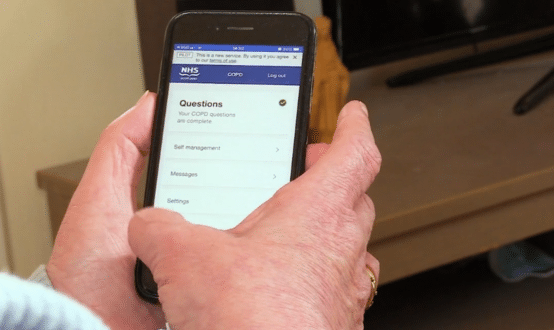Digital Health Coffee Time Briefing ☕
- 31 January 2024

Your morning summary of digital health news, information and events to know about if you want to be “in the know”.
???? News
???????? The National Institute for Health and Care Excellence has recommended two products from Great Lakes Neurotechnologies to provide options for remote monitoring of Parkinson’s disease. NICE said it would conditionally recommend Kinesia 360 and KinesiaU on the condition that further evidence is collected, including the impact of the technologies on resources for patients and their carers, and the impact on health-related quality of life.
???? HIMSS, a professional society committed to reforming the global health ecosystem through information and technology, today announced the launch of a new modernised Infrastructure Adoption Model (INFRAM). The newly modernised INFRAM focuses on five key domains that drive measurable contributions to the value and outcomes of healthcare organisations: cybersecurity, adoption, sustainability, performance, and outcomes.
???? Integrating the Healthcare Enterprise announced that IHE-Europe and IHE Catalyst both played crucial roles in the recent Athens Digital Health Week, organised by IDIKA, the National eHealth Authority of Cyprus and HL7 Hellas. The event, in combination with the very first HL7 Europe Working Group Meeting and HL7 FHIR marathon was a great success and there are already plans to hold it again in 2025. 650 delegates from 24 countries participated in this event targeting both national digital health transformation issues such as the implementation of the national eHealth interoperability framework, and EU policy issues related to the implementation of the European Health Data Space (EHDS) regulation and the adoption of the European EHR Exchange Format. The event included 135 international speakers, 11 EU funded projects and 22 supporting organisations including IHE-Europe and IHE Catalyst.
???? The new EU-funded five-year project PAIR just kicked off in Copenhagen with the participation of 20 partners from seven countries. It aims to ensure that Europe has the expertise and capabilities for advanced point-of-care systems and prognostic models based on AI and machine learning. The SARS-CoV-2 pandemic was the biggest global shock in decades, one that claimed millions of lives and devastated the global economy.
???? Researchers from the University of California (UC) San Diego School of Medicine have found that an AI model deployed in emergency departments to forecast patients’ sepsis risk has significantly reduced mortality, according to a study published last week in npj Digital Medicine. Sepsis is a major cause of morbidity and mortality in inpatient settings, and developing models to predict which patients are at risk of the infection has been a priority for medical researchers in recent years. Many of these models are driven by AI, which can ingest and analyse a large number of data points to inform predictions.
❓ Did you know that?
A new study has named the top 10 UK areas where people search for heart health terms the most, with Hereford coming out on top. The study, undertaken by Global Healthcare Innovator Aster DM Healthcare examined Google data to discover the average monthly number of heart health-related search terms in each UK city. The data shows that Hereford is the UK area most interested in Heart health where for every 100,000 people living in the city, there are 1,571 searches for information on heart health each month. People living in Hereford are most interested in tracking their blood pressure, which accounts for more than 55% of all searches in the city.
???? What we’re reading
Can Generative AI Convince Medical Doctors They Are Wrong When They Are Right and Right When They Are Wrong? A column by AI and machine learning expert Dr Lance Eliot investigates the question in Forbes.
???? This week’s events
Thursday 1 February, University of Oxford – Digital Care Hub, the Institute for Ethics in AI and Reuben College, Oxford, and Casson Consulting, co-host an AI roundtable event



